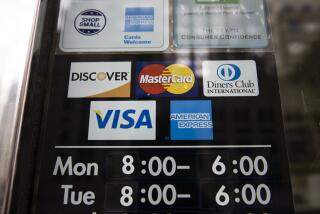Foreclosures by major banks increase 21.1% in third quarter
- Share via
Reporting from Washington — Foreclosures by major banks jumped 21.1% in the third quarter as voluntary holds for paperwork problems were lifted, according to federal regulators. But the number of homes en route to being seized fell 15.8% in October, a research firm said.
The Office of the Comptroller of the Currency said new foreclosures initiated by eight large national banks and One West Bank federal savings association in Pasadena rose from the second three months this year as mortgage servicers lifted holds they instituted as federal and state authorities investigated faulty paperwork.
The jump came as the number of homeowners who were delinquent on their mortgages remained stable, though still high, the agency said Wednesday in its quarterly Mortgage Metrics Report.
The report included data from such financial institutions as Bank of America, JPMorgan Chase and Wells Fargo. Together, they accounted for about 62% of all first mortgages in the country.
As of the end of September, 88% of the 32.4 million loans in the portfolios of those institutions were current and performing. Of those overdue, 3% were 30 to 59 days delinquent, 4.9% were 60 days or more delinquent and 4.1% were in foreclosure.
But there was some encouraging news: The percentage of delinquent loans declined significantly from a year earlier.
For example, the percentage of loans more than 60 days delinquent dropped 13.8% from the third quarter of last year. And newly started foreclosures fell year-over-year by 11.8%.
Separately, real estate data research firm CoreLogic in Santa Ana said in a report Wednesday that a so-called shadow supply of 1.6 million homes faced foreclosure or already were owned by banks in October, down from 1.9 million units the previous October.
California, Florida and Illinois accounted for more than one-third of those properties.
The shadow supply can stand in the way of a housing recovery because most will end up either in foreclosures or in so-called short sales, in which a bank allows a home to be sold for less than the debt on the property.
Times staff writer Alejandro Lazo contributed to this report.
More to Read
Inside the business of entertainment
The Wide Shot brings you news, analysis and insights on everything from streaming wars to production — and what it all means for the future.
You may occasionally receive promotional content from the Los Angeles Times.











